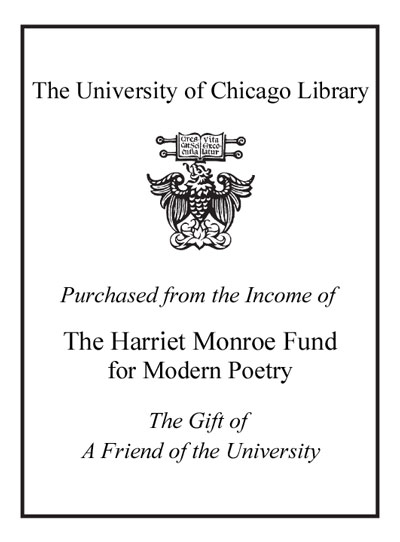Review by Booklist Review
It is tempting to think of Carruth as a latter-day Robert Frost--a crusty old New Englander brimming with wit and wisdom. Carruth's wit is less apothegmatic, though, and his wisdom seems harder won and more personal. He never seems, as Frost did, to be an old master. Quite often, his wisdom consists in acknowledging loss without compensatory understanding. The long poem "Dearest M-," set during the day on which his daughter died, voices a solitary, educated father's grief as forcibly as ever it could be expressed but without histrionics because, finally, this kind of grief is a heavy burden for an old man to bear. Several shorter poems take up other kinds of losses, some to comic rather than sad effect, and others, especially the sequences "Faxes to William" and "While Reading Basho," pretty much demonstrate that, what with the pleasures--the pains, too!--of memory, the garden, and art (for Carruth, primarily poetry and jazz), an old guy can sometimes think he is content. This is life-sustaining because life-honoring stuff. --Ray Olson
From Booklist, Copyright (c) American Library Association. Used with permission.
Review by Publisher's Weekly Review
Octogenarian poet Carruth, who won the Pulitzer Prize in 1996 for Scrambled Eggs & Whiskey, and whose anthology The Voice That Is Great Within Us remains a stalwart of 20th-century American modernism, is a familiar and respected figure on the lit scene, having overcome decades of psychological and physical illnesses to find himself still productive in old age. His Collected Shorter Poems (which will be reissued by Copper Canyon on the occasion of this new collection's appearance) and Collected Longer Poems are highly individual, cranky, even cussed, but always with a unique voice, sometimes a highly moving one, and occasionally quite funny. This new collection's emotional center is a 15-page-long poem in memory of the poet's daughter Martha, who died of cancer in her 40s. Other sections, like "Afterlife," "Basho" and "Faxes" have Carruth speaking plainly to a variety of interlocutors, in lines of varying lengths. "While Reading Basho," with its modern-style haiku, has some of the jauntiness of Carruth at his crustiest: "Basho, you made/ a living writing haiku?/ Wow ! Way to go, man." Asian writers seem to be of particular significance, as in "The Afterlife: Remembering Fucking," which concludes: "Great enigma, I not knowing what orgasm/ Felt like to you and you not knowing what/ Orgasm felt like for me the impenetrable/ Mystery. `Everything is possible,' Chuang-tzu/ Said, `If one only gives oneself to another.'" It's not at all clear who will be interested in remembering such encounters with the poet, but as it is, the very appearance of another book will please this prolific writer's many fans. Others unfamiliar with his verse would do better starting off with earlier and more consistent work. (Sept.) (c) Copyright PWxyz, LLC. All rights reserved
(c) Copyright PWxyz, LLC. All rights reserved
Review by Library Journal Review
"A memorious old man" approaching his ninth decade, Carruth continues to question authority, fate, circumstance, and our assumptions about aging. This collection of new poems spans a multitude of subjects and emotions in a voice softened by promise and hardened by disappointment sometimes within the same sentence: "One hoped the brilliant sunset of July/ In all its layered upsurge, orange and rose,/ Might fade more slowly from the sky/ And bring the day to close/ On something more concordant than this cry/ In massive, horrifying dark." Like the late Philip Larkin, Carruth's sense of "the unending end" is unyielding, and when he glumly notes that "for the things/ life didn't give us/ we have no/ compensation. None" we must admire his grizzled, all-too-pointed wit. But Carruth knows joy, too, in nature, in jazz (Sidney Bechet's music is "an Iliad to my ears"), and in physical love. His sense of humor surfaces repeatedly, and if the domestic marginalia of sequences like "Faxes to William" seem lighter than air, the elegiac gravity of "Dearest M ," on a daughter's death, refuses to release us until its final syllable. Fred Muratori, Cornell Univ. Lib., Ithaca, NY (c) Copyright 2010. Library Journals LLC, a wholly owned subsidiary of Media Source, Inc. No redistribution permitted.
(c) Copyright Library Journals LLC, a wholly owned subsidiary of Media Source, Inc. No redistribution permitted.
Review by Booklist Review
Review by Publisher's Weekly Review
Review by Library Journal Review

